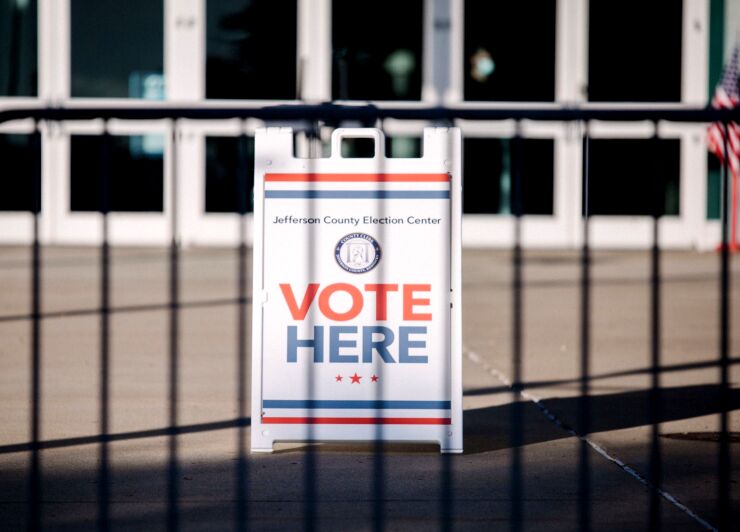There's a leadership void around the world, according to American Institute of CPAs president and CEO Barry Melancon — and the accounting profession can help fill it.
"Who would you say is a true government leader?" he asked a gathering of technology executives held at AICPA headquarters this week. "Five years ago, you might have said Angela Merkel, but you'd be hard pressed to find that level of leader today. There isn't that global high-level leadership today — and so the role of the profession is really critical. It's important from an economic stability standpoint in all parts of the world. What we do is probably more important than we always realize."
"We have a very confused and unsettled world," he said, citing a wide range of disturbances, including the war in Ukraine, inflation fears, the lingering COVID pandemic and the aforementioned leadership vacuum, among many others. And while he acknowledged that the U.S. is insulated from some of these factors, it is fully exposed to others, including political dysfunction.
"This is the most dysfunctional political environment I've seen since 1986," he said. "There's no leadership. That void is a serious detriment to our country. There's a disease of short-termism in politics that's dangerous."
In the upcoming midterm elections, Melancon expects that the House will flip to the Republicans. "All the demographics are there," he explained. "The Senate could go either way, but once the House flips, everything changes."

That would put Congress in a position to interfere with the regulatory priorities of the administration and federal regulators like the Internal Revenue Service or the Securities and Exchange Commission. He noted, for instance, that a flipped House may decide to challenge some or all of the SEC's proposals around climate change disclosures (
Hyper-politicization brings with it a host of problems, and it has specific ramifications for accountants, particularly around the regulations they help clients navigate every day.
"We have a hyper-regulatory environment," Melancon explained. "For eight years under Obama, the pendulum swings one way, and for four years under Trump it swings the other, and now it's swinging back. In today's environment, you have agencies looking to make big marks with enforcement."
That can lead to major regulatory change — and so can the common changeover in the top spots of major regulators: It's very rare for an agency head to last through an entire presidential term, which raises the potential for leaderless interregnums, followed by new leaders looking to make their mark.
An agency of critical importance to accountants is a case study in the impact of all these issues, Melancon explained.
"The IRS is a symptom of all [this dysfunction]," he said. "The IRS is not made up of men and women who want to be problematic — it's the system that's bad. It's effectively broken."
Disagreements over the role, resources, priorities, proper targets and goals of the IRS, both in Congress and beyond, make it difficult to solve the agency's problems with taxpayer and tax practitioner service, technology and the tax gap.
"The IRS is asking for more money, but that will only solve problems in the long-term," he continued. "This profession is going to be saddled with those problems for a while."
More uncertainty coming
In his wide-ranging address, Melancon touched on a litany of areas where the profession can expect change and upheaval. Among the areas he mentioned were:
- ESG: Between the SEC's climate change proposals and the formation of the ISSB, debates over environmental, social and governance regulations and standards are bound to arise. "Accounting standards didn't develop in the 1920s and 1930s without a lot of debate and argument. It's natural. And we'll see that around ESG standards," Melancon predicted. "I could bring you busloads of people in our profession who are totally opposed at least to the E part in ESG, and busloads who think it's the most important thing in our times. That debate gets solved by gathering the information and letting the data decide. Measurement and reporting will tell the story one way or the other. That's where our profession comes in."
- Private equity in accounting. "There's a huge private equity play in the profession," he said, and people should expect to see many more firms making deals with PE firms to help raise money for retirement issues and capital needs. That said, he warned, "All of these PE deals need to be structured in a way that preserves the profession's integrity."
- Changes in tax. "The tax return is evolving to be a byproduct, not a product," he explained. "The profession's role in tax is very important, but practitioners need to understand that the return is not the event — particularly not to the next generation of entrepreneurs." What they want instead, he suggested, is regular tax advice throughout the year.
- Changes to the audit. While discussing the Dynamic Audit Solution that's soon to be released by the AICPA and its consortium partners, Melancon said, "The modern audit is about 100 years old — and the world has changed a great deal in that time. It's necessary to rethink it. But we cannot take our eye off the ball in terms of quality work with audits. That's table stakes."
Despite all the changes, pressures and upheavals they face, however, Melancon was upbeat about accountants' prospects. "The profession is doing very well, particularly from a public accounting perspective," he said. "Historically, the profession does well in both downturns and upticks, because of the trusted advisor relationship."





